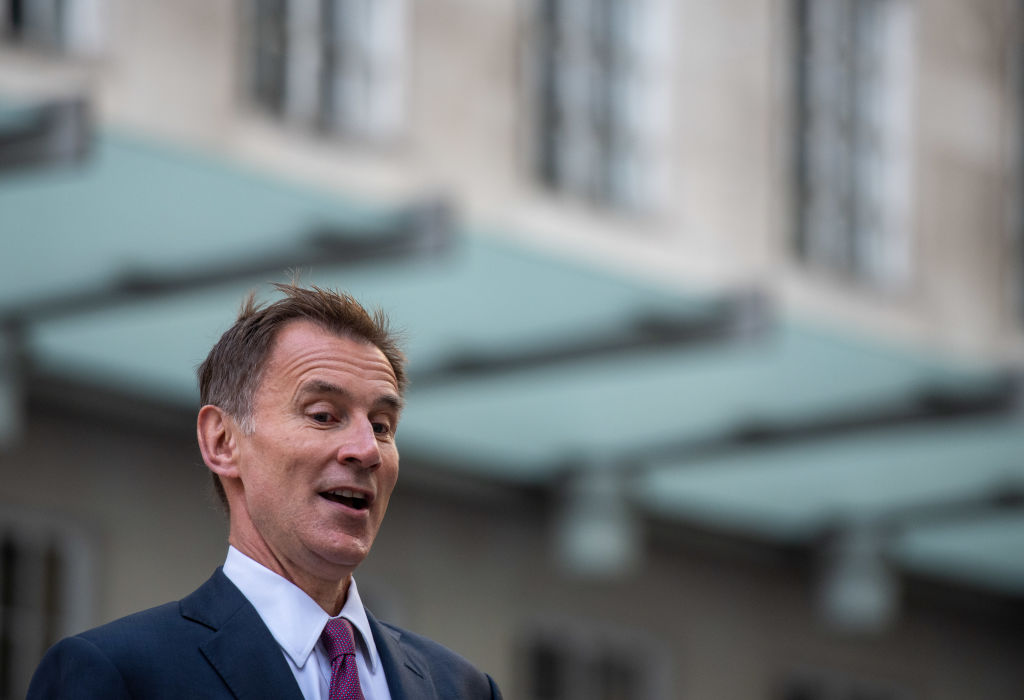Liz Truss has installed Jeremy Hunt in the driving seat and is in for a wild ride

Nicole Richie, the American reality TV star, once described getting an Uber as “going somewhere with a friend, just that friend doesn’t know you.”
She was contracting out her transportation to a stranger because, at 32 years old, she didn’t know how to reverse park.
Last week, Liz Truss had a similar realisation as her government veered dramatically off the road. Her saviour in a Toyota Prius who has now taken charge, Jeremy Hunt, used his public statement and formal announcement to the House of Commons to let everyone know, she might’ve ordered the car – but now he was the one who’s driving. And he’s no friend to the Truss cause.
Yesterday, he told the country “almost all” the measures of the mini-budget which blew a bloody hole in the heart of the Truss administration would be reversed.
His first statement came yesterday morning, ostensibly in order to calm the markets even before he stood up later in the House of Commons.
But it also meant he was the frontman of the show, without the prime-minister-for-now by his side, when he told the country he would be clawing back £32bn of savings.
Under Truss’ plan there would have been between a £60-72bn hole in the public finances. So even under Hunt’s preliminary measures, there are still significant savings that will need to be made from what the Chancellor calls “departmental efficiencies”. For many, this is simply code for “austerity” but made with what Hunt calls “compassion”. In other words, tough spending cuts, but they’ll try to be nice about it.
Hunt will likely give short shrift to the idea welfare benefits should go up with inflation, or free school meals could be extended. Letting working-age benefits go up by earnings, rather than inflation, would save the Exchequer somewhere in the realm of £5bn a year, even if it would leave people on some benefits with a 14 per cent drop in income. It could also mean an extra 600,000 people who will be living in absolute poverty by 2024.
His economic plan, he made clear to the House of Commons, was one of scrimping and saving.
That’s the policy then. But who is in charge?
At the outset of his speech, he said “the government has today decided to make further changes to the mini budget”.
What he meant is: I have decided. Implicit in this is he is now running the government and Liz Truss the helpless passenger in the Hunt-mobile she was forced to order because she couldn’t achieve the simple task of smoothly driving the economy.
In fact the Prime Minister got two mentions in the Chancellor’s morning appearance: when he said they had agree to cull the Corporation Tax cut and when he rolled back the two-year date for the energy price cap.
Both of them were flagship policies of Liz Truss. Both of them were first on the chopping block under the new reign of Jeremy Hunt.
The Prime Minister, in response to the Chancellor’s statement, said “the British people rightly want stability… we have taken action to chart a new course for growth”.
To call this an exercise in growth, in fact, to try to paint this as anything other than an absolute last-ditch effort at resuscitation not just of Liz Truss, but of Conservative government, is an extraordinary level of delusion. It is only matched by the one which induced the handling of the mini-budget to begin with.
So what happens next? An election? A new leader? A “caretaker” for the British public in what will be one of the most challenging winters in modern history?
Even the most adept political soothsayers were at pains to give a straight answer on who, when or how Liz Truss should be turfed out. Though most agreed that eventually, she would be.
What is clear is, certainly in Jeremy Hunt’s mind, he is setting himself up to be Prime Minister, whether in actual name or in terms of control of the government.
But Truss is right about one thing: the people want stability and this? This ain’t it, chief (for now).
